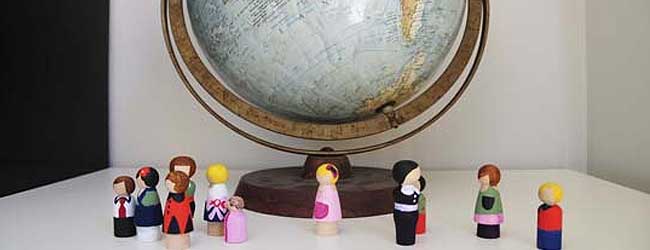My first thought while reading this book:
“Uh-oh, I’ve done that. And that. And that. Oh – and I still do that. Oops!”
It’s hard not to take personally the lessons learned in “37 What Were They Thinking Moments in Marketing,” by marketer Olalah Njenga.
Njenga sent me this book, offering 37 anecdotes of marketing mishaps that she experienced – and includes a disclaimer right up front that names, places and professions have been changed, and that the book isn’t intended to harm anyone’s reputation. Phew!
Did You Have a “What Were They Thinking Moment” Today?
Wondering if you’ve done anything worthy of being featured in the book? Here are some mistakes folks made, and a few of Njenga’s thoughts:
- Wearing gym clothes to a business event – this is not the definition of business casual
- Crossing out all the information on a business card, and replacing it with all new information (the business owner had a few months to get new cards, and with the quick printing options available, this was very unprofessional)
- Trying to “pick someone’s brain” for free, several times – it’s time to set up a paid consultation
- Bullying people in a waiting room for testimonials needed for a Website –self-explanatory
- Moving from new Twitter connection to pushy salesperson – be aware that social networking consists of creating relationships first, sales opportunities later
Some Skin in the Game
One of the chapters is titled “Skin in the Game,” and it’s an anecdote about how something went wrong because people weren’t fully committed, and didn’t have a vested interest in the outcome of an event.
In the spirit of fair play, I asked Njenga to put some “skin in the game,” and offer up to Small Business Trends readers her own “What Was She Thinking Moment.” After all, even the best of us have these moments, right?
Njenga laughed, and readily complied.
Scene #37 ½
Olalah’s Deeply Personal “What Were You Thinking Moment”:
So You Call Yourself A Business Owner?
Like most business owners in the early stages of business, I was cash-strapped. I had just finished a project for a client and was happy to hear that my payment would be ready immediately. I arrived at the client’s office and she handed me a sealed white envelope with my name on it. I happily shoved it in my purse and drove home to get a deposit ticket for my bank account.
I completed the deposit ticket and opened the sealed envelope. The check was made payable to my company and not me personally. In fact, it’s not fair to say made payable to my company because in fact I only had a registered DBA (doing business as). It wasn’t an actual business. I was a sole proprietor.
I called the client and explained that the check was made payable to my DBA and that I needed the check to be payable to me personally. She said to come by her office in three days to pick up a replacement check.
Three days passed and as directed, I showed up at the client’s office. She met me in the parking lot and smiled upon my arrival. When I got out of the car she approached me quickly, smiled again, and handed me a sealed white envelope. As I took it from her hand she said, “Olalah, if you’re going to be in business, then be a business.”
What Was I Thinking?
My bruised ego would hear those words echoing in my head for days after I finally cashed the client’s check. Though I had been running my one-person company for nearly two years, the truth was, doing business under my name and social security number instead of doing business as a registered business in my state made a difference. It made a difference in how checks were made payable. It made a difference in how clients treated me. Little did I realize, it was also making a difference in how I looked at myself. The sobering words of “Olalah, if you’re going to be in business, then be a business,” catapulted me to the Secretary of State website where I learned what I needed in order to be considered a real business entity.
Taking money doesn’t make you a business. The truth is, you’re not really a business unless other business professionals see you and treat you like a business. It doesn’t matter if you are a business of one or 10 — if you are going to be in business, then be a business.
This was, in fact, the most powerful “What Was I Thinking” moment I’ve ever had.
What This Book is Really About
As someone who has been in the public relations business for years, I know that many things can make a reputation, and just one slip-up can ruin a reputation. Is it fair? No. Is it true? Unfortunately, yes.
After reading this book, I realized that it’s impossible to have a business and not make mistakes. The key take-away here is: look at everything from your client’s point of view, and be aware of your actions at all times. And, of course, if you do realize that you made a mistake, apologize and make amends as quickly as possible.








 It is a privilege you have chosen to visit RM’s website. Welcome to the site, the premier source of made to order and confidential business advice, where the clients and their needs are the real priority.
It is a privilege you have chosen to visit RM’s website. Welcome to the site, the premier source of made to order and confidential business advice, where the clients and their needs are the real priority. 
